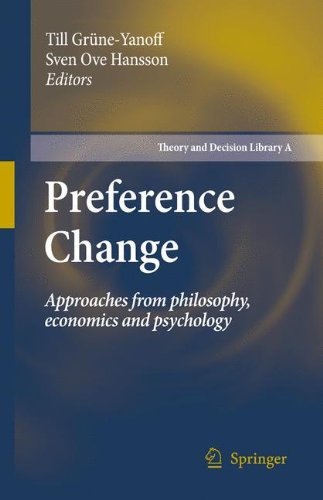

Most ebook files are in PDF format, so you can easily read them using various software such as Foxit Reader or directly on the Google Chrome browser.
Some ebook files are released by publishers in other formats such as .awz, .mobi, .epub, .fb2, etc. You may need to install specific software to read these formats on mobile/PC, such as Calibre.
Please read the tutorial at this link: https://ebookbell.com/faq
We offer FREE conversion to the popular formats you request; however, this may take some time. Therefore, right after payment, please email us, and we will try to provide the service as quickly as possible.
For some exceptional file formats or broken links (if any), please refrain from opening any disputes. Instead, email us first, and we will try to assist within a maximum of 6 hours.
EbookBell Team

4.8
84 reviewsThe fact that preferences change is a pressing but unresolved problem for philosophy and the social sciences. Social scientists use preferences to explain agents’ behaviour; philosophers use preferences to explicate value judgements. A lot of empirical research is invested into identifying people’s preferences. However, the success of these endeavours is seriously threatened, because precise accounts of when and why preferences change are lacking.
This volume answers to this need by collecting new essays from an interdisciplinary group of experts in the field. These essays, especially written for this volume, survey the newest approaches to preference change developed in the social sciences and in philosophy, and will serve as a platform for future research. They review some standard material, including the neoclassical preference model and doxastic preference change, time preferences and the debate over policy evaluation under preference change. However, the focus is on new research that is not widely known, such as conditional utilities, non-monotonic logics, complex systems models, inter-temporal choice approaches, etc.
The book serves three purposes. It introduces undergraduate students to the current state of research on preference change, it gives graduate students and researchers in-depth insights into the state-of-the-art modelling techniques of different disciplines; and it points out to experts the lacunae in the literature and directions for future research.